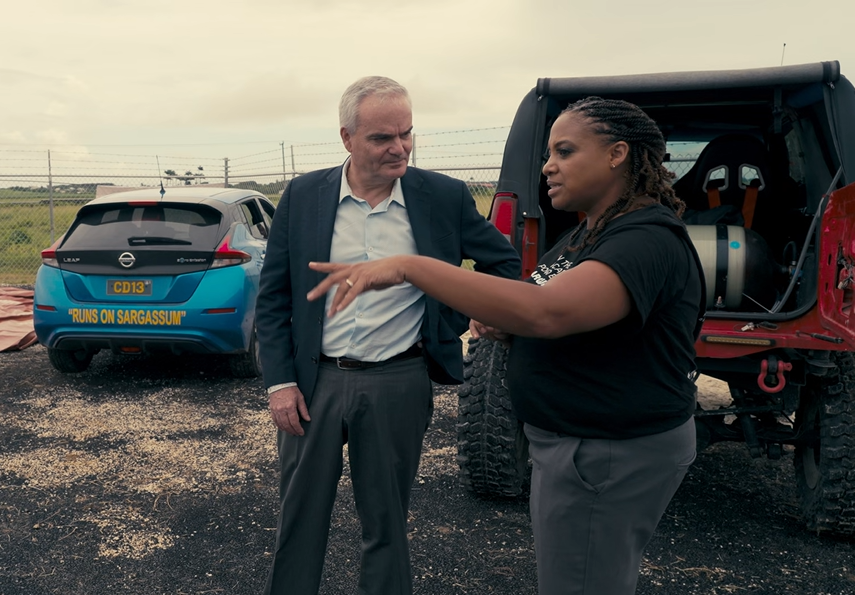Imagine waking up on a Caribbean morning to the salty kiss of sea breeze—only to be smothered by the thick, pungent stench of rotting sargassum blanketing the shore. Once a symbol of sun-kissed freedom, our coastlines have, for years, been under siege. Boats grounded. Fishers halted. Tourism choked. For many, sargassum is a menace—an uninvited guest overstaying its welcome.
But what if this very menace is the messenger of our next big breakthrough?
This year’s AI Research Conference electrifying panel, From Sargassum to Sustainability: Tech-Driven Solutions for Ocean Health, flips the script. Instead of lamenting the seaweed invasion, Caribbean scientists and innovators are reimagining sargassum as a resource—a golden tide of opportunity in disguise. And the stories coming from this panel? They don’t whisper—they roar.
Moderated by the brilliant Dr Ilenius Ildephonce, the session ignites with the visionary insights of Dr. Mario Costa Sousa from the University of Calgary. His team’s Rapid Sargassum Modeling (RSM) Project is not science fiction—it’s science Caribbean-style, fused with grit and grace. Using AI, immersive visualisation, and real-time satellite data, the RSM is like a digital guardian of our oceans, detecting sargassum blooms before they wreak havoc. It models their spread, gauges environmental damage, and helps defend coral reefs—the beating heart of marine life—from suffocation.
This isn’t tech for tech’s sake. It’s tech with soul. Tech with purpose.
But hold on, the magic doesn’t stop there.
Enter Dr Legena Henry—fearless inventor, university lecturer, and Caribbean daughter of the soil. With a wild mix of genius and gumption, her company, Rum & Sargassum Inc., is doing the unthinkable: turning sargassum into fuel. Yes, you read that right. Not just any fuel—renewable natural gas (RNG) brewed from sargassum, Blackbelly sheep manure, and wastewater from local rum distilleries. At a live demo in Barbados, this elixir powered a generator, juiced up an electric vehicle, and proved it could help stabilize entire island energy grids.
Let that sink in.

The same seaweed once strangling our shores is now lighting our homes, charging our cars, and offering a pathway to energy sovereignty.
Together, these trailblazers are not just patching up problems. They’re birthing a new Caribbean renaissance—where marine waste fuels clean energy, where artificial intelligence safeguards fragile ecosystems, and where island innovation speaks louder than imported solutions.
This panel reminds us: we are not victims of climate change. We are architects of our survival.
So the next time you smell sargassum in the air, don’t turn away. Lean in. That’s the scent of possibility. That’s the Caribbean rising.
And the world had better be ready.
The 2025 UWI Five Islands Artificial Intelligence Conference will be held June 23-24.
Registration and the full programme details are available at fiveislandsaiconference.com.




